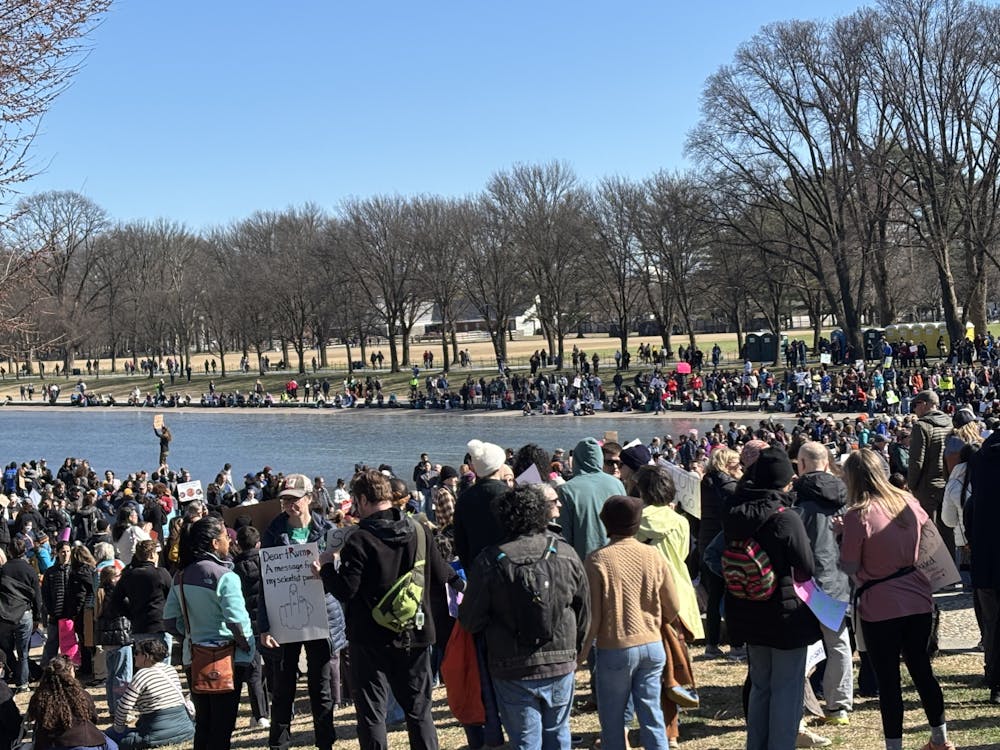The Student Government Association (SGA) held its weekly general body meeting on April 18 to discuss SGA Committee reports and elections, spring 2023 bylaws updates and the 2023–2024 Rules Bill. This was the first meeting of the 111th senate.
SGA Committee election
The senate went through elections for each SGA Committee. The elections were coordinated by Fraternity and Sorority Life Representative Dalhart Dobbs and Religious and Spiritual Life Representative Nasreen Naqvi.
- Dobbs was elected as President of the Senate and Naqvi was elected as Vice President of the Senate.
- Junior Class President Resham Talwar was nominated and voted as the Academic Affairs Chair.
- Junior Class Senator Ryan Alezz was nominated and voted as the Civic Engagement Chair.
- Sophomore Class President Stone Meng was nominated and voted as the Internal Affairs Chair.
- Junior Class Senator Brandon Benjamin was nominated and voted as the Finance Chair.
- Sophomore Class Senator Shruti Tyagi was nominated and voted as the Committee on Student Organizations Chair.
- Senior Class President Rachel Huang was nominated and voted as the Health, Safety and Sustainability Chair, with a tie-breaking vote from Dobbs.
- Sophomore Class Senator Oluwakemi Abiodun was nominated and voted as the Student Services Chair. Executive Vice President Jackson Morris added that the Student Services Chair will be leading the liaison program in which each senator will be paired with an administrator.
Spring 2023 bylaws updates
- Executive Secretary Amy Li presented on updates to SGA bylaws. According to Li, the modified bylaws reflect updates to the infrastructure of SGA and remove the requirement for senators to serve on either the Finance Committee or Committee on Student Organizations.
- Alezz asked if there is a central Google Drive. Dobbs replied that they are currently working on building a shared Google Drive.
- Huang questioned about the powers and responsibilities of caucus and whether exact initiatives and events would need to be specified. Dobbs emphasized that initiatives are defined as anything that requires public use of the SGA name.
- Executive Treasurer Jenny Chen asked about ways of determining committee meeting time if the members and their schedules were unknown.
- Dobbs stated that the current policy is to let the chair decide meeting times so that senators can either decide their committee choice based on their availability of attending meetings or schedule their classes while taking the meeting time into consideration.
- “That's actually the reason that we did it. It's because you can set a meeting time according to your schedule and then other people can either base their committee choice off of being able to attend meeting or base class schedule off of meeting time,” he said.
2023–2024 Rules Bill
Executive President Ryan Chou presented the rules bill for the new SGA senate.
- The bill will remove the necessity for the approval of previous minutes, remove registering codes for general body meetings and attendances, add constituency meetings and create new changes in disciplinary marks.
- Alezz questioned the reason behind using point of information (POI) as the predominant approach of raising inquiries instead of regular Q&A. Dobbs noted that Q&A will be used when many questions are expected in situations such as presenting bills, whereas POI will be used when only a few questions are raised.
- Meng called for removing mandatory business casual wear as it is not entirely feasible. Morris remarked that such changes can only be made at the discretion of the presiding officer.
- Krieger School of Arts and Sciences SGA Senate Representative Danial Nabizadeh asked about the difference between the first reading and second reading. Dobbs discussed the significance of the second reading. “First reading and second reading allow for people to have time to discuss resolutions or bills and have time to discuss different legislations. If something comes up, the presiding officer can waive the first reading based on urgency,” he said.

















